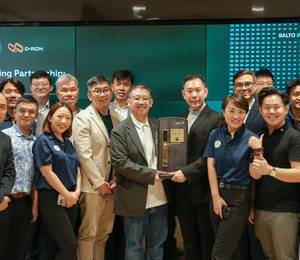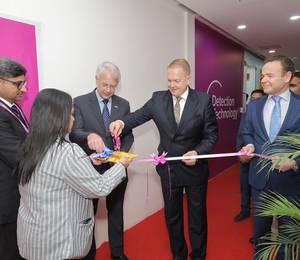Nearly half (45%) of Singaporeans surveyed - the highest in Southeast Asia - do not take proper measures to secure their financial data and use the same passwords for some to all of the services and apps that contain their personal payment data.
This was revealed in the recently released VMware Banking Consumer 2020 study. This is a regional multi-country study conducted in September 2018 that surveyed the behaviours, preferences and attitudes towards banking and the future of payments of 6,000 consumers in Indonesia, Malaysia, Singapore, the Philippines, Thailand and South Korea. VMware, Inc. is a leading innovator in enterprise software.
An astonishing 76% of Singapore consumers surveyed store their bank account details on at least one to six applications, yet only a handful (14%) are practicing good cyber security practices by using different passwords for all their accounts, making Singapore the country with the least cyber hygiene of those surveyed in the region, as Thailand takes the lead at 30%.
While the increasing uptake in cashless payments are encouraging signs for Singapore’s cashless ambitions, poor cyber hygiene practices could put consumers, banks and financial institutions at greater risk of financial fraud and losses.
“With Singapore expected to be 82% cashless by 2022, according to Frost & Sullivan’s Future of Cashless Payment in Singapore 2018 report1, banks and financial institutions (FSIs) have a pressing need to boost their cyber security defences,” said Sanjay K. Deshmukh, Vice President and Managing Director, Southeast Asia and Korea, VMware. “Existing architecture is insufficient to guard against this new payment reality – banks and FSIs need a new network infrastructure to protect their apps, data and users across multiple cloud environments.”
Singaporeans Distrust ePayment
The study also found that Singapore consumers are more sceptical about the level of security afforded by new payment methods than their counterparts in other countries in the region, preferring the security of traditional payment methods such as cash and ATMs.
In contrast, consumers in Indonesia, the Philippines and Thailand place greater trust in connected things as new methods of payment.
Banks And FSIs Can Do Better
What this means is that banks and FSIs need to do more to give consumers in Singapore peace of mind.
Singapore consumers also indicated areas of improvement for banks to do better in, rating these attributes lower than the regional average:
• Transparency in policies and understandable terms and conditions;
• Data privacy security and ethical use of personal data;
• Speed in answering queries or resolving issues;
• Availability of customer service channels
In order to further secure online payment platforms, banks and FSIs continue to innovate to meet the shifting demands of mobile-first consumers. Forward-thinking banks are already gaining traction with the introduction of biometric payment with at least three quarters of consumers in the region placing high trust in the technology, alongside cash payment.
“Banks and FSIs face increased scrutiny over how personal data is handled and an unyielding demand for fast response to consumers. Finding the right balance between staying attuned to consumers’ needs in compliance and security, while future-proofing their digital foundation with innovation can be tricky but critical, especially when we are turning to technologies of the future,” commented Deshmukh.
Deshmukh recommends a Virtual Cloud Network architecture that harnesses the power of networking technologies. This will empower banks and FSIs to respond faster to new opportunities and threats, create new business models, and deliver services to all applications and data, wherever they are located.
He explained. “As the region embarks on its journey to becoming smart cities and nations with next-generation technologies, establishing a highly secured infrastructure will be mission-critical for verticals such as banks and FSIs.”
Innovation needs to rest on a robust network architecture built on speed, intelligence and ‘zero trust’, urges VMware.
1 Frost & Sullivan, Future of Cashless Payment in Singapore 2018, 2018











